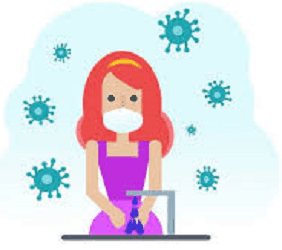While a great number of businesses are shut down in response to the Covid-19 threat, many are still operating at present. At some point the others will resume operations but should be doing everything possible to avoid a continuation or resumption of the spread of this virus. We at Kathbern Management are still operating (remotely) and are ready to assist you in any way that we can to respond to your recruiting needs during this difficult time.
The following article is reprinted from Industry Week, a U.S. trade journal. We felt that some of these suggestions would be useful for any business:
“Best practices on keeping workers healthy at manufacturing plants still in production.
IW Staff
MAR 24, 2020
For manufacturers that are considered essential and are remaining open, MAGNET: The Manufacturing Advocacy and Growth Network, Northeast Ohio’s Manufacturing Extension Partnership (Ohio MEP) partner, has some suggestions on how to keep employees virus-free while working.
In addition to government guidelines which include,
Guidance on Preparing Workplaces for COVID-19
the group has sourced these suggestions based on what businesses both locally and globally are doing.
The guidance is as follows:
• All office teams work remotely (sales team, marketing teams and finance teams as well as back-office). When this isn’t possible, spread out remaining staff as far as possible and hold not in-person meetings – use remote tools even room-to-room.
• People should keep 6 feet distance when they talk and even some things are being rearranged in the plant to accommodate others working 6 feet from one another if possible. As this may become the new normal, any steps you take now to spread areas out will likely be good for the future too.
• Temperature checks should be administered before entering the businesses (use IR scanning thermometer that does not require touching skin or ear temperature with an alcohol swab in between). Note: there are legal implications for this (see here). A person who shows temperature above 99.5 degrees is not allowed to enter.
• Wearing masks or other PPE while in the factory (there is a shortage now, so this is not likely useful).
• All doors of businesses are left open or even removed when appropriate to eliminate surfaces.
• Increase ventilation rates and increase the percentage of outdoor air that circulates into the system.
• Buy all no-touch disposal receptacles or remove lids that require contact to open.
• Disinfect all touched surfaces between each shift.
• Eliminate all routine shift hand-off meetings or limit them to just particular people or do them virtually.
• If you can move from 1 or 2 shifts to 3 shifts and keep each shift with the same people each day, then if one shift is sick the others are protected. This arrangement can also work by having one crew for part of the week and one crew for the other part of the week. This may also accommodate shifting child care schedules.
• Stagger shift start/stop times, break times, and lunchtimes to minimize congregations at the time clocks or break areas.
• Zone the factory and prohibit employees from wandering into zones where they do not need to be to perform their jobs.
• Isolate key employees without whom the factory cannot operate (e.g., boiler operators, wastewater treatment engineers, lead electricians, maintenance, etc.) to prevent them from getting ill.
• Shutdown the businesses when production is not needed (even if you ramp on and off on a daily basis). Every bit of time not spent around other people may eliminate the spread of the virus.
While these are specific guidelines from Ohio’s Executive Order, they can apply to all states. They also include:
• Allow as many employees as possible to work from home by implementing policies in areas such as teleworking and video conferencing
• Actively encourage sick employees to stay home until they are free of fever
• Separate employees who appear to have acute respiratory illness symptoms from other employees and send them home immediately. Restrict their access to the business until they have recovered.
• Reinforce key messages – stay home when sick, use cough and sneeze etiquette and practice hand hygiene – to all employees, and place posters in areas where they are most likely to be seen. Provide protection supplies such as soap and water, hand sanitizer, tissues and no-touch disposal receptacles for use by employees.
• Frequently perform enhanced environmental cleaning of commonly touched surfaces, such as workstations, countertops, railings, door handles and doorknobs. Use the cleaning agents that are usually used in these areas and follow the directions on the label. Provide disposable wipes so that commonly used surfaces can be wiped down by employees before each use.”
Kathbern Management is an executive search consultancy based in Toronto, helping companies find the executives and senior managers who not only have the experience and credentials to fulfill their responsibilities, but also have the emotional and “fit” requirements that will enable them to be successful in a particular environment. We simplify the process and, through our deep research, are able to bring more and better candidates forward than would ever be possible through a do-it-yourself passive advertising campaign.
Contact us today for a free consultation about your key person search.

